Ukraine, Russia agree to create eight humanitarian corridors, excluding Mariupol
The two warring sides in the Ukraine conflict have reached an agreement to create eight humanitarian corridors to evacuate civilians from besieged towns and cities.
Ukrainian Deputy Prime Minister Iryna Vereshchuk said Kiev and Moscow agreed to create eight humanitarian corridors, adding that the city of Mariupol was not among them.
She said efforts to reach Mariupol, which has suffered some of the heaviest bombardments since Russia launched the military operation on February 24, with humanitarian supplies continued to fail.
These corridors will allow people to flee from the cities of Chernihiv, Sumy, Kharkiv, and Kiev as well as allow food and medical aid to be brought to the hardest-hit areas of conflict.
According to a UN estimate, over 3.1 million people have fled the crisis-stricken country in Eastern Europe to neighboring countries in the last three weeks amid a simmering humanitarian crisis.
Moscow has set a deadline for Kiev to surrender the city of Mariupol. It has also promised safe passage to Ukrainian nationalists in the besieged city, on the condition that they lay down their arms.
Kiev, however, has rejected Russia’s demands. It says giving up the city is out of the question.
At least six people were killed in overnight bombing in the capital Kiev on Monday. The city’s mayor said shelling targeted residential houses and a shopping district.
The Russian military also hit a Ukrainian army facility in Rivne Region, according to reports.
Embargo on Russian Oil
Meanwhile, Kremlin on Monday warned Europe that it would be hit hard in the event of an embargo on Russian oil, striking the continent's energy balance, but would not affect the United States.
It came after the European Union leaders decided to come together this week to consider imposing tougher sanctions on Russia, including an oil embargo, amid a simmering crisis in Ukraine.
"We are working on the fifth round of sanctions," a senior EU diplomat was quoted as saying by Reuters on Monday on condition of anonymity.
US President Joe Biden is also expected to attend the meeting, the official said.
Biden will be attending EU and NATO meetings on Thursday, as well as the Group of Seven (G7) summit, all of them scheduled to take place in Brussels.
Prior to Biden's arrival, EU member states will take up the issue of anti-Russia sanctions among foreign ministers on Monday, reports said.
Both the US and EU states have already slapped numerous sanctions against Russia over the conflict in Ukraine, which has already in its fourth week.
EU sanctions need to be approved by all members. However, an oil embargo is a tough one for Brussels because most EU states are dependent on Russian gas for energy.
In this regard, French President Emmanuel Macron has said that if the Ukraine conflict worsens there should be no "taboos" in terms of EU sanctions against Russia.
"These sanctions are meant to force President [Vladimir] Putin into a new calculation," a French presidency official was quoted as saying.
"Among our partners and among the countries trading with Russia, there are some who are more sensitive on the issue of oil and gas. Nevertheless, the president (has) said, there is no taboo."
In the meantime, Germany, which is the largest EU buyer of Russia's oil, is seeking to replace Russian gas with new suppliers from the Persian Gulf.
Tensions between Russia and the West continue to escalate as the US and its allies impose sanctions on Moscow over Kremlin’s military operation in Ukraine.
Western countries, including the US, have decried Russia’s military intervention in Ukraine as unprovoked, but Moscow says the “special operation” aims to “demilitarize” and “denazify” the country after years of fighting between the Kiev government and separatists in the breakaway Donbas region.
Since then there have been fears of disruptions to major oil and gas supplied by Russia, prompting EU states to pursue new supplies of energy.
US President Joe Biden last week announced $800 million in additional military aid for Ukraine.
"The world is united in our support of Ukraine and our determination to make Putin pay a very heavy price," Biden said at the White House.
The fresh aid package includes 800 anti-aircraft systems; longer-range anti-aircraft systems and ammunition for those systems; as well as 9,000 anti-armor systems; 7,000 small arms; 20 million rounds of ammunition, artillery, and mortars; and drones.

Microsoft collaboration in Gaza genocide
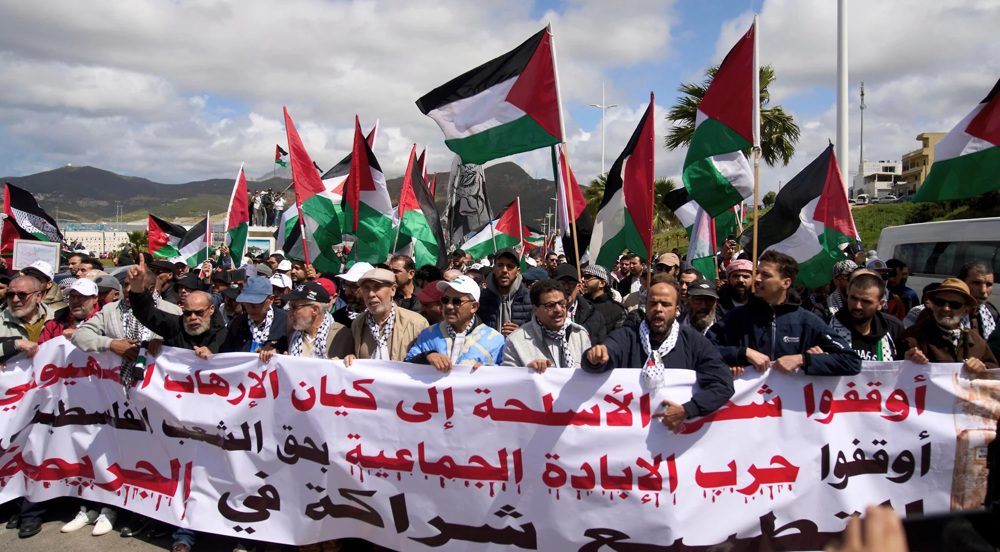
Moroccan port workers protest Maersk ship carrying F-35 parts to Israel
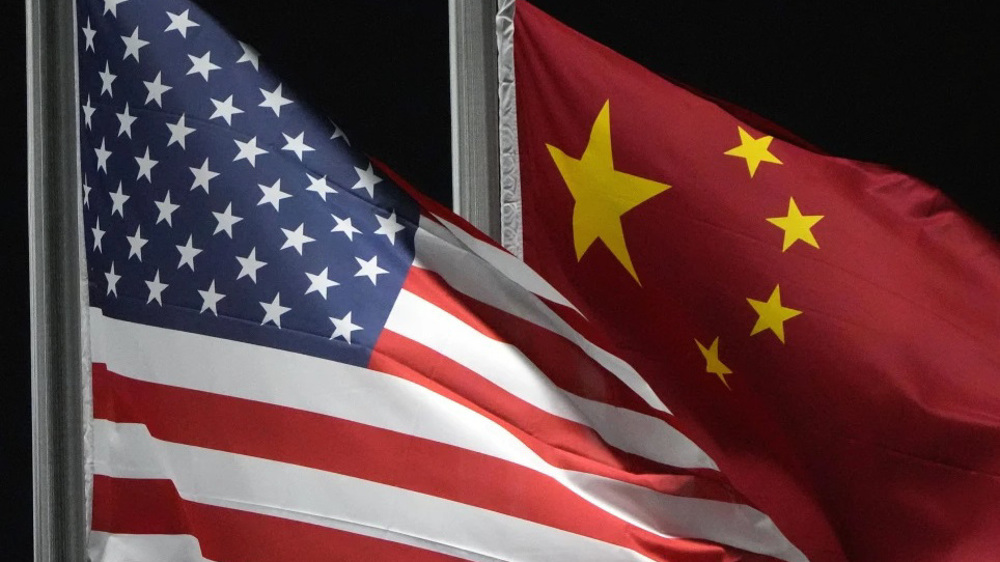
China sanctions US figures over ‘gross interference’ in Beijing’s affairs
Yemen asserts enhanced military readiness; takes US aircraft carriers under firepower
VIDEO | Iran seeks foreign investment to boost oil, gas sectors
Iran condemns terror attack in India's Kashmir region
After second Signalgate scandal, Democrats call for Hegseth’s resignation
Mahmoud Khalil missed son's birth after US officials denied temporary release
Iran’s annual inflation up 0.7% to 33.2% in April: SCI
Ayatollah Sistani offers condolences on passing of Pope, hails his role in promoting peace
Iran says expert-level talks with US postponed to Saturday


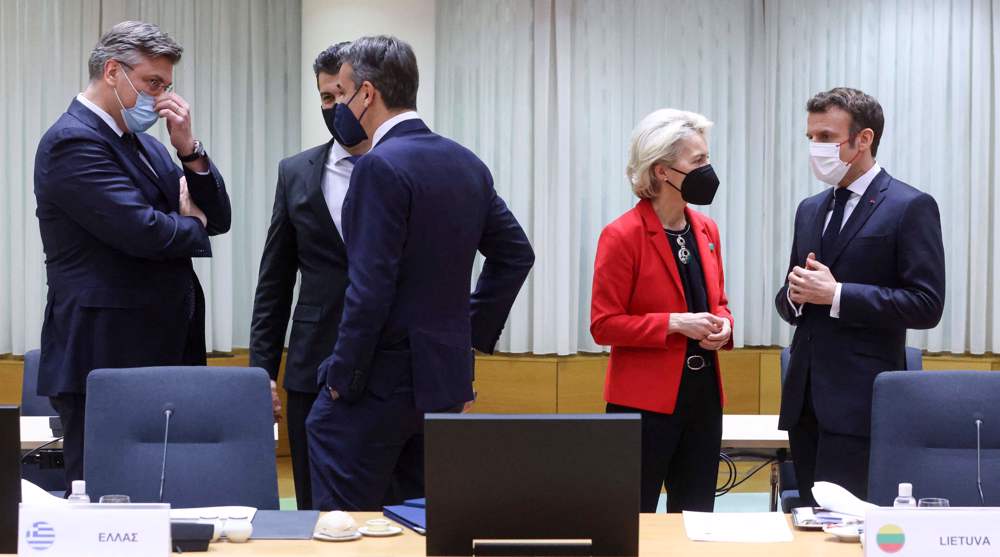
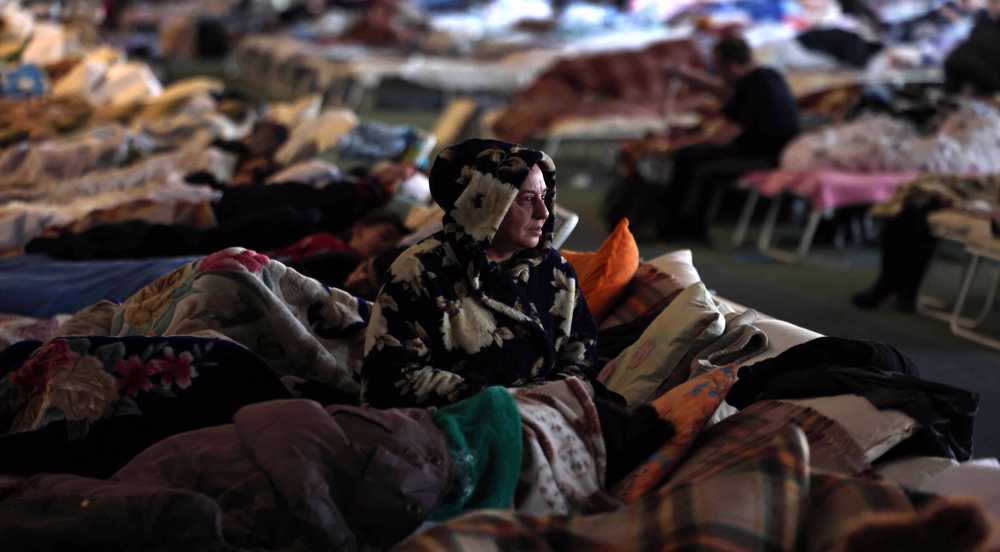
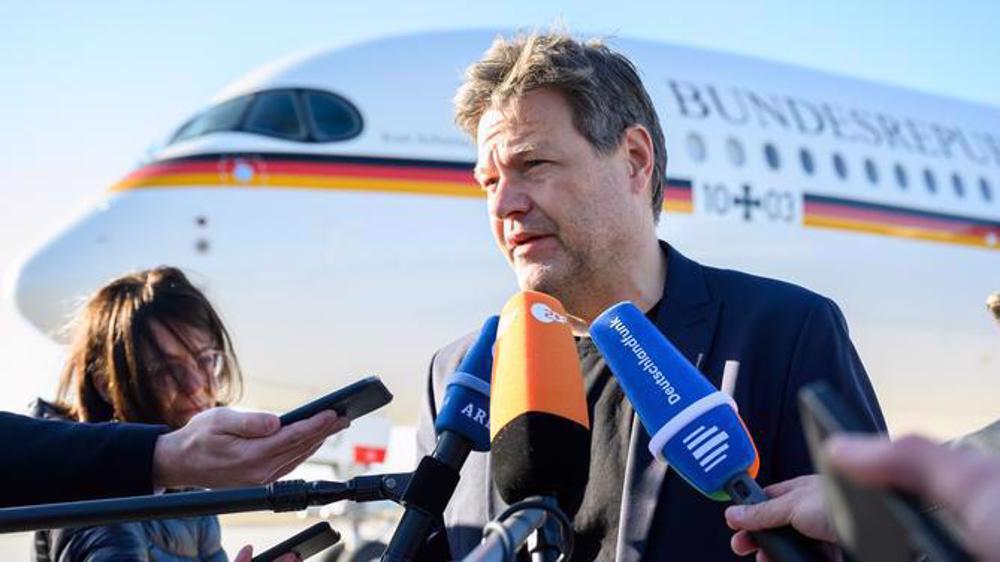



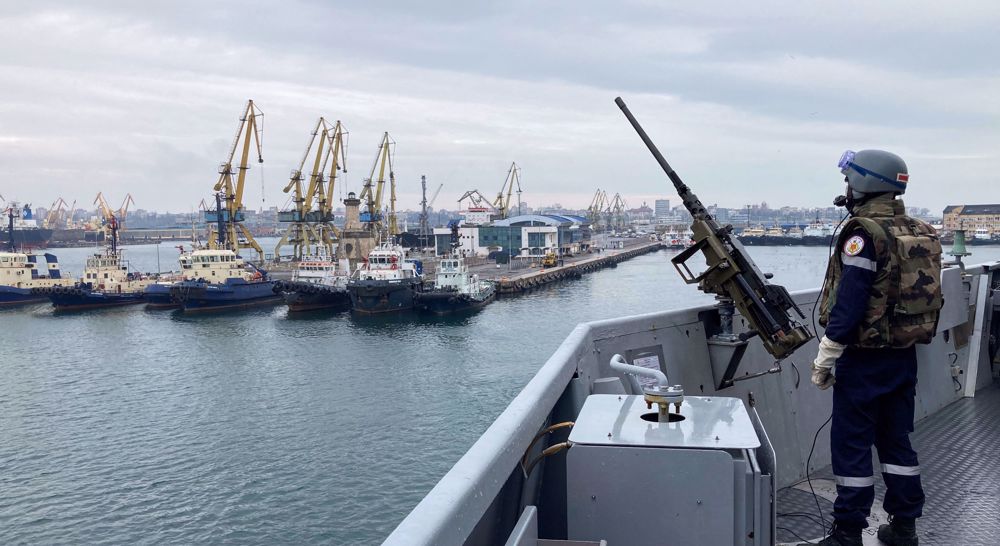
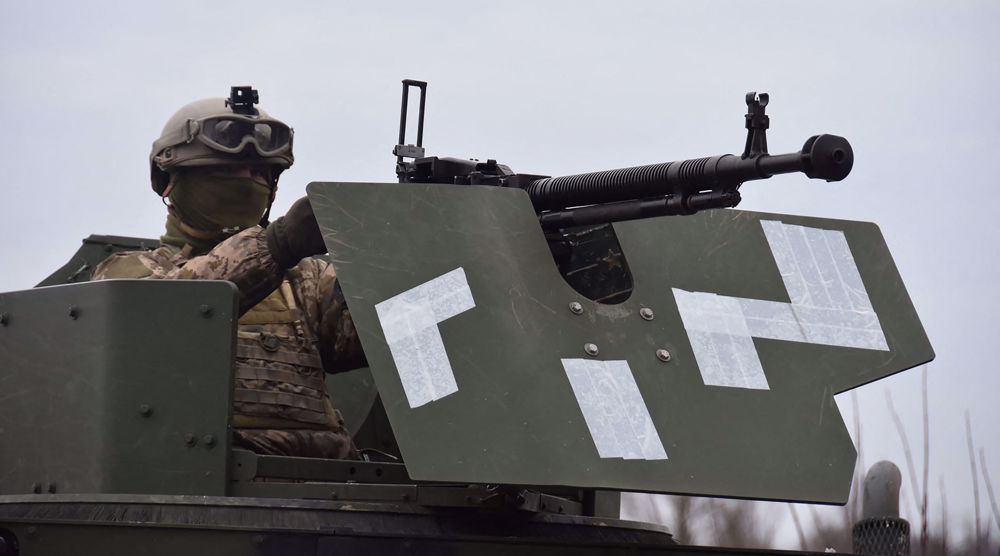
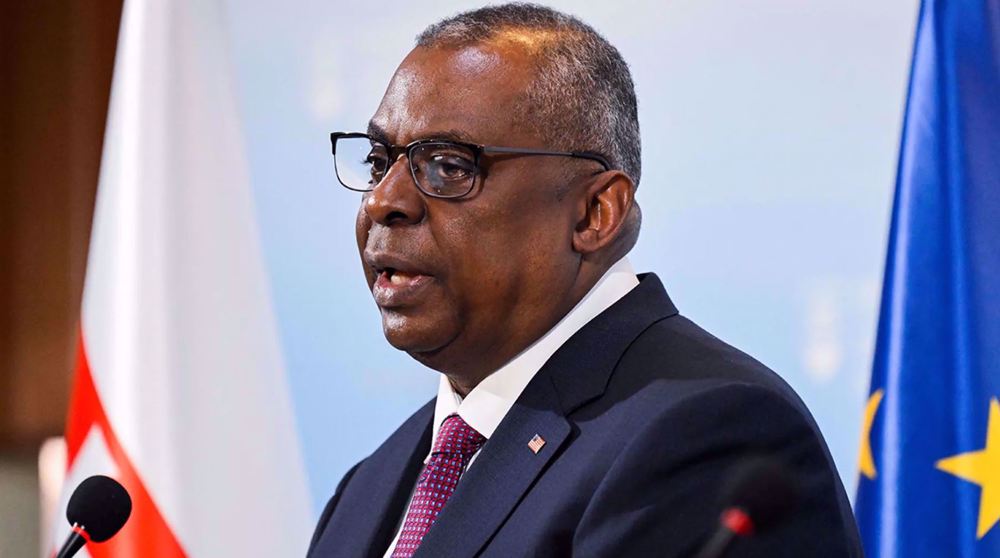
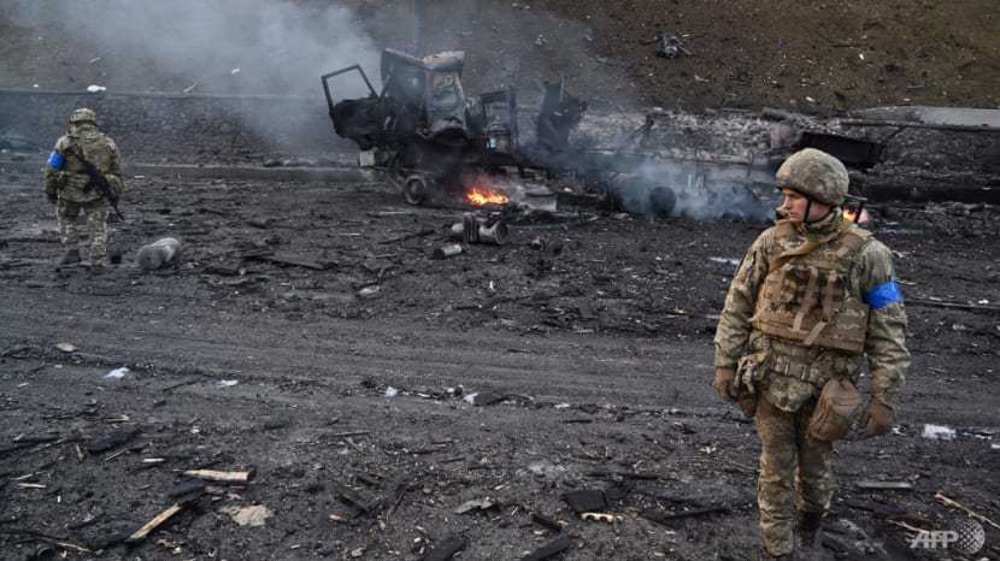

 This makes it easy to access the Press TV website
This makes it easy to access the Press TV website